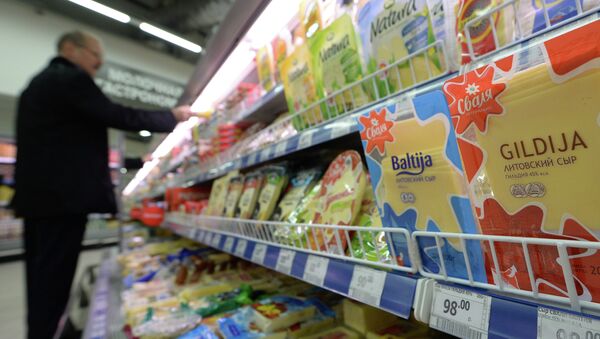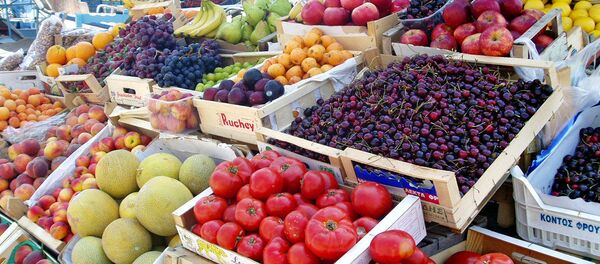"Russia will not allow it…as the market has changed substantially [since the start of the embargo]. We will certainly not allow the automatic resumption of supplies from companies that have been targeted by our restrictions," Alexei Alekseenko, an aide to the head of the Federal Service for Veterinary and Phytosanitary Surveillance told RIA Novosti.
"It will be a completely new list of companies. They will be inspected by Rosselkhoznadzor and relevant agencies of other members of the Eurasian Economic Union," Alekseenko said during a visit to Greece.
The official did not rule out the possibility of selective lifting of restrictions on food supplies to Russia.
"The final decision depends on the political will of the Russian leadership," he stressed.
Alekseenko noted that diversifying imports was Russia's target for many years mentioning that in the late 1990s Russian food market was dominated by suppliers from North America, mainly the United States, as well as Europe.
"The dictate of some groups of countries is unacceptable… That's why we opened supplies from Latin America. The situation has changed for the better," Aleksenko said naming the fairer prices on food products as one of the main improvements.
Alekseenko said that after the introduction of food import ban from countries that hit it with sanctions, Russia was able to further diversify its food supplies. He mentioned Turkey, Iran, China and India among countries with which Russia has established successful cooperation.
Following Crimea's reunification with Russia and the escalation of the internal Ukrainian conflict, the West started blaming Moscow for alleged interference in Ukraine's affairs, and introducing sanctions against Russia.
In response to Western sanctions, in August 2014 Moscow introduced an embargo on the import of a range of food products from countries that imposed restrictions on Russia.



